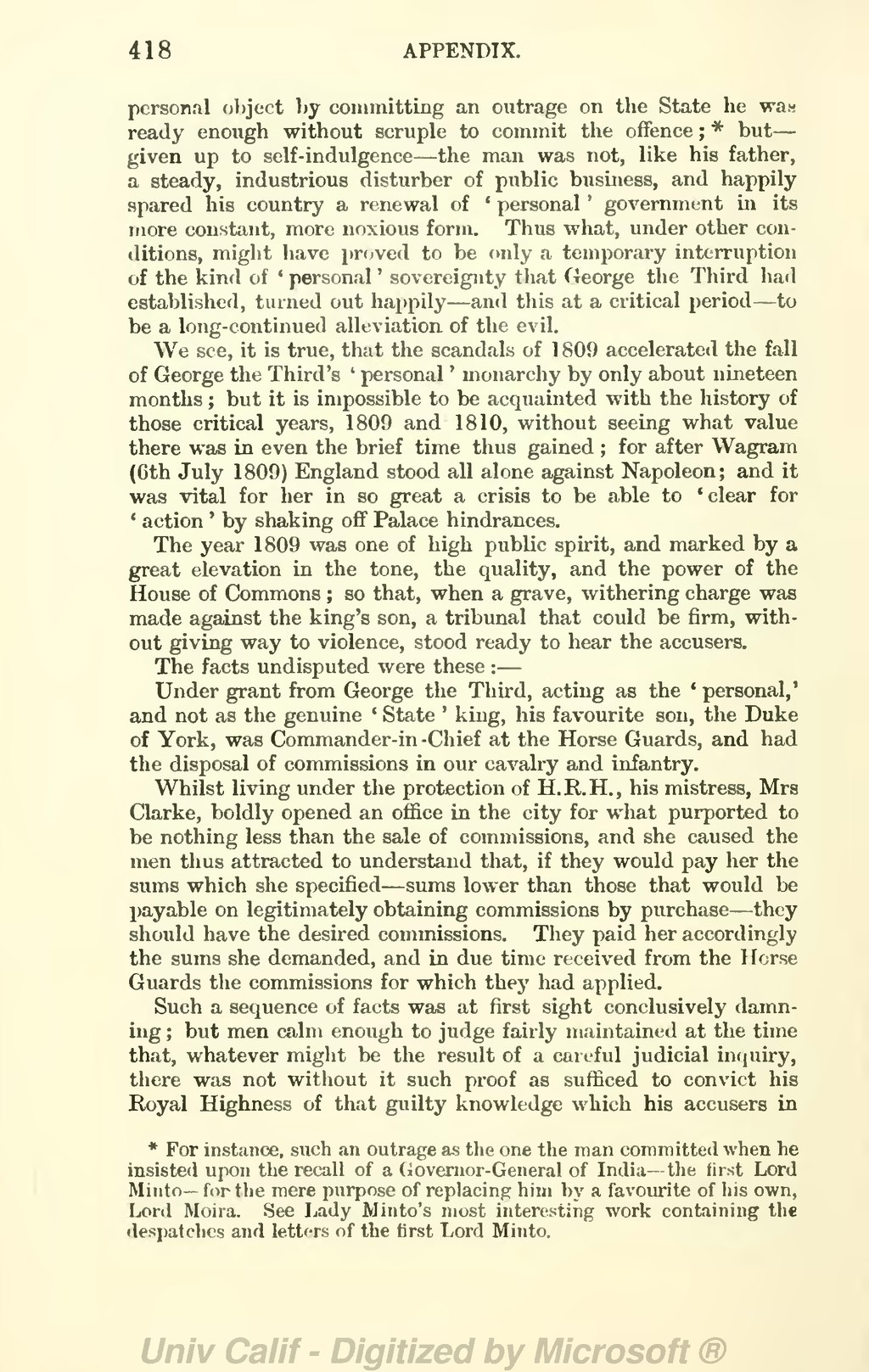418 APPENDIX. personal oliject liy committing an outrage on the State he wa« ready enough without scruple to commit the offence ; * but — given up to self-indulgence — the man was not, like his father, a steady, industrious disturber of public business, and happily spared his country a renewal of ' pei'soual ' government in its more constant, more noxious form. Thus what, under other con- ditions, miglit have proved to be only a temporary interruption of the kind of ' personal ' sovereignty that George the Third had established, turned out happily — and this at a critical period — to be a long-continued alleviation of the evil. We see, it is true, that the scandals of 1809 accelerated the fall of George the Third's ' pei'sonal ' monarchy by only about nineteen months ; but it is impossible to be acquainted with the history of those critical years, 1809 and 1810, without seeing what value there was in even the brief time thus gained ; for after Wagram (6th July 1809) England stood all alone against Napoleon; and it was vital for her in so great a crisis to be able to ' clear for ' action ' by shaking off Palace hindrances. The year 1809 was one of high public spirit, and marked by a great elevation in the tone, the quality, and the power of the House of Commons ; so that, when a grave, withering charge was made against the king's son, a tribunal that could be firm, with- out giving way to violence, stood ready to hear the accusers. The facts undisputed were these : — Under grant from George the Third, acting as the ' personal,' and not as the genuine ' State ' king, his favourite son, the Duke of York, was Commander-in-Chief at the Horse Guards, and had the disposal of commissions in our cavalry and infantry. Whilst living under the protection of H.R.H., his mistress, Mrs Clarke, boldly opened an office in the city for what purported to be nothing less than the sale of commissions, and she caused the men thus attracted to understand that, if they would pay her the sums which she specified — sums lower than those that would be payable on legitimately obtaining commissions by purchase — they should have the desired commissions. They paid her accordingly the sums she demanded, and in due time received from the Horse Guards the commissions for which thej' had applied. Such a sequence of facts was at first sight conclusively damn- ing ; but men calm enough to judge fairly maintained at the time that, whatever might be the result of a careful judicial inquiry, there was not without it such proof as sufficed to convict his Royal Highness of that guilty knowledge which his accusers in
- For instance, such an outrage as the one the man committed when he
insisted upon the recall of a Governor-General of India— the first Lord Minto— for the mere purpose of replacing him by a favourite of liis own, Lord Moira. See Lady Minto's most interesting work containing the despatches and letters of the first Loi'd Minto.
